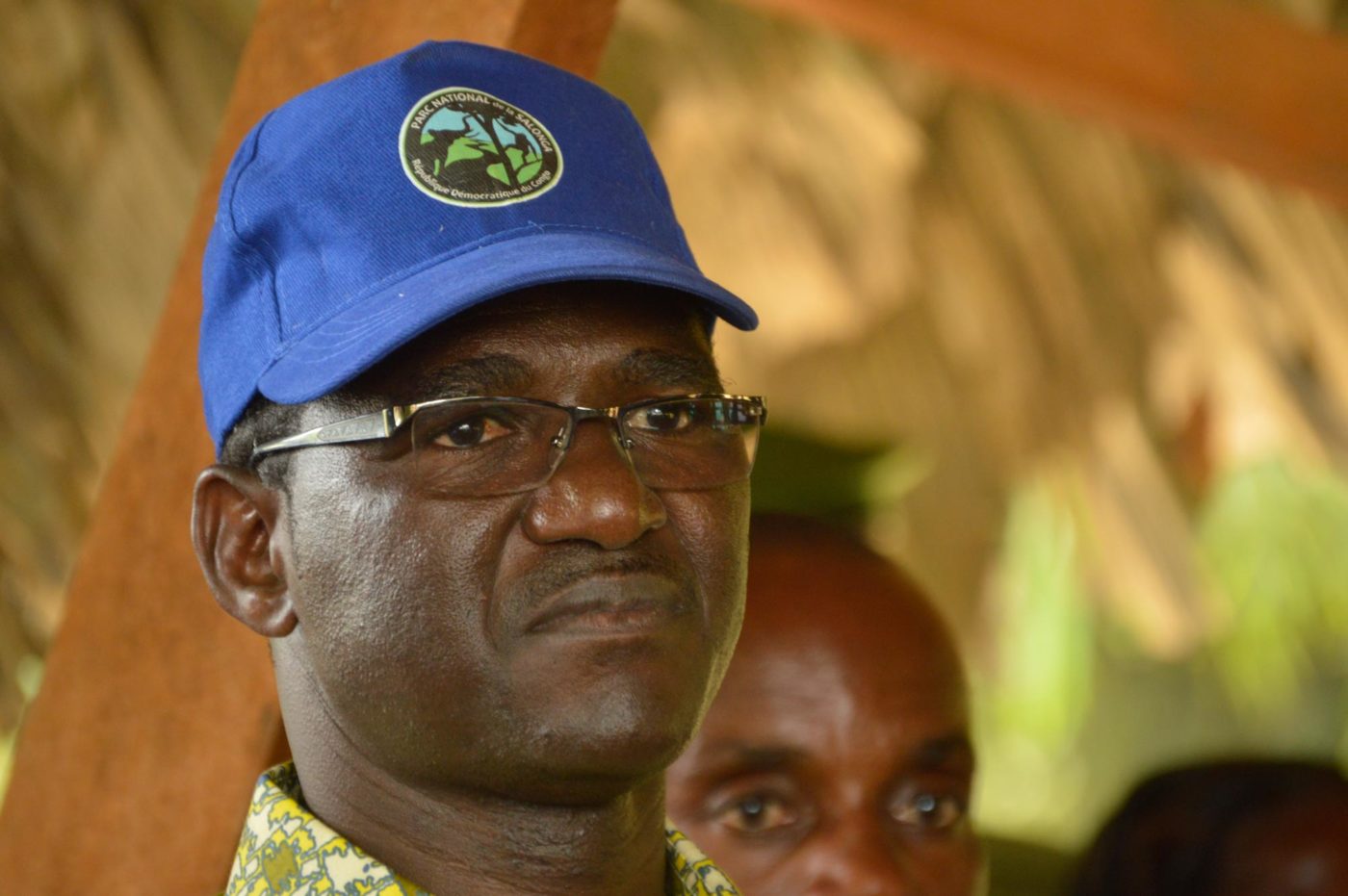Pierre Kafando is the Director of Salonga National Park. He is the person in charge of the park under the co-management agreement between the Congolese Institute for the Conservation of Nature (ICCN) and WWF. Pierre hails from Burkina Faso, and when asked to compare the environment of Salonga to that of Burkina, a Sahelian country, he says, “It is true that the forest here is always green, whereas in Burkina there are different colors according to the seasons. The management problems of a protected area though are similar. There is poaching in both places against which it is necessary to fight”. Before coming to the DRC, Pierre worked for WWF at the Dzanga Sangha Special Reserve in the Central African Republic.
»We support local people and empower them in the management of their natural resources.«

Pierre Kafando, Director of National Park of Salonga
Pierre, what is the collaboration between the park and the surrounding local populations?
We support local people and empower them in the management of their natural resources. This involves the structuring of communities through Local Development Committees (LDCs) and the development of community development plans. This process involves several steps that constitute a diagnosis of social and economic problems. The potential of the lands and soils are highlighted. According to the pronounced development needs articulated by the communities the park can propose activities that link livelihood improvements of the communities with the conservation of the natural resources.
Community forests represent a major innovation in this regard. They are attributed through official documents and we assist communities in the sustainable management of these forests. Thanks to the creation of pilot farms where we practice an integrated agriculture (agroforestry, perennial plants, breeding, fish farming, improved fallows) farmers can observe and practice new agricultural methods.
How many farms receive support from the Park?
In 2017, 10 pilot farms have been set up. We are at the beginning of the process and we plan to install at least one farm in each group of villages (there are 19 of those). We accompany model farmers in their choice of activities. We are assisting the commercialization of production by improving roads to Boende or Mbandaka. Our activities seek to minimize the incentives for people to access natural resources inside the park.
Is the population receptive to this support?
It depends on the areas of the park. In areas such as the immediate surroundings of Monkoto, where many activities have been carried out in the past years, our initiatives are very well received. In the Monkoto area, there is a sharp reduction in poaching for the bushmeat trade. We also play a social role appreciated by the community; we facilitate the evacuation of patients to Kinshasa by plane. We have implemented a literacy program in the Monkoto Corridor, which is expected to train about 500 people this year. The classes are completely free. We also plan to relaunch Monkoto’s community radio. It is rather in the south-eastern part of the park, where the problem of poaching is more acute, that awareness efforts remain to be made.

